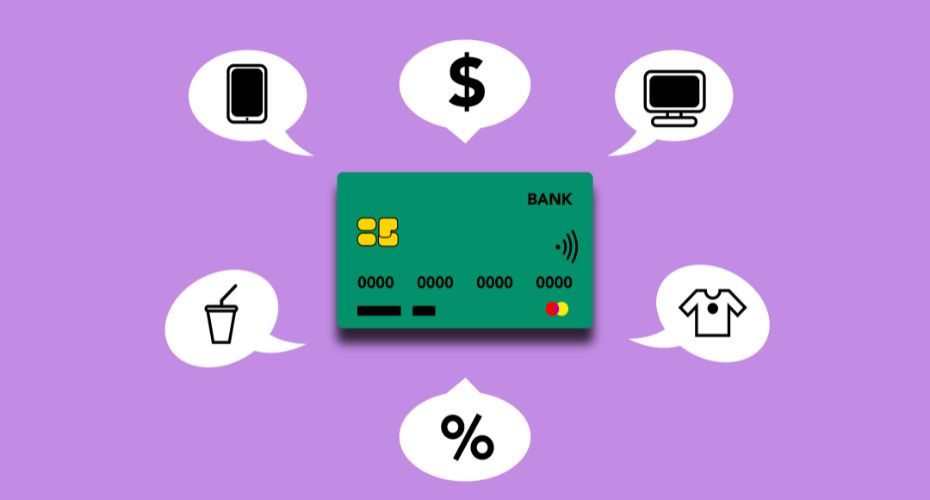When searching for advice on how to meet your financial goals, there’s one tip you’ve probably heard over and over: You need to make a budget and stick to it. No matter what your goal is – reduce debt, buy a house, save for a holiday – most financial experts seem to agree you can’t do it without creating a strict budget to control your spending first.
While I’m not arguing a budget can’t be useful, it certainly isn’t the only option to reach your financial goals. In fact, there are plenty of successful people who don’t use budgets. So let’s explore some alternatives to budgeting that can help you reach your goals faster.
Who needs a budget?
If you’re living payday to payday, as 36% of workers in the UK are, you should absolutely identify where every pound is going and ideally use that information to make necessary changes.
Anyone undergoing a major life change can also find budgeting useful – for at least a few months. If you’re having a baby, renovating your home or planning a wedding, budgeting can be a great way to ensure you are financially ready for the change.
While a budget can be a useful tool to get you started with your financial goals, it’s rarely enough on its own. Let’s look at the Law of the Instrument: “If the only tool you have is a hammer, it is tempting to treat everything as if it were a nail.” So, if all you think about is budgeting, every financial challenge is a spending problem. However, in reality, you’ll often need to find a way to increase your income, decrease your expenses, or a mixture of both, to reach your goals.
Why budgets fail
Before we explore different alternatives to budgeting, let’s take a look why traditional budgets might not always work.
When people talk about personal budgets, they usually refer to a detailed plan for how to spend their money each month.
Experts typically advice you to sort your monthly expenses into categories: mortgage/rent, groceries, transportation, entertainment and so on. Then, you give yourself a fixed amount to spend in each category. When you’ve spent all the money you’ve allocated for a particular category, such as entertainment, that means you can’t spend any more in that category that month.
This kind of strict budget can have its advantages. For many people, it’s much easier to control their spending when they know exactly how much they have to spend in any given category. However, for others, a rigid budget like this can be hard to stick to. Here are some of the main reasons why budgets fail:
1. Unrealistic goals
The most common reason a budget fails is that it was created based on unrealistic goals. A realistic budget should cater to your financial history, needs and goals. But don’t expect your budget to solve all your financial problems. Setting unrealistic goals can discourage you from following through on your budget or create a sudden change to your lifestyle that you are not ready for.
2. Lack of commitment
Many people make enthusiastic budgets and then lose their motivation to adhere to them after a while. The usual reason for this is that budgeting requires change, and letting go of some comforts can be challenging.
Making and sticking to a monthly budget also involves a lot of record-keeping. It’s a chore that needs to be tracked regularly and implemented into a non-negotiable habit. Lack of commitment can severely hamper your financial progress.
3. Unpredictable expenses
We all have unexpected life events crop up. So another problem with budgeting for the month is that there are some expenses you can’t easily plan for. Therefore, many people don’t adequately budget for miscellaneous expenses. Whether it’s a gift that needs to be bought or an emergency car repair, these things can be tricky to predict. If you find yourself with a budget that has no leeway to manage these expenses, it’s a sign that you need to modify it.
4. Frugal fatigue
Another reason why budgets don’t work for many people is that they feel too restrictive. Having to budget for every single penny can feel like being on a strict diet; you can stick to it when you’re just starting out, but after a while, you develop frugal fatigue. This can therefore lead to spending sprees and giving up the budget altogether.

Alternatives to budgeting
So, let’s say you’ve figured out after several tries that budgets simply don’t work for you. The question now is, what budgeting alternatives are there?
The answer to this question usually depends on what exactly it is about traditional budgets that isn’t working for you. Some people need more flexibility to deal with unexpected expenses or want to treat themselves occasionally. Others want to avoid all the bookkeeping hassles.
Here are six alternatives to budgeting to avoid these problems while still focusing on your financial goals.
1. Pay yourself first
If what you hate about budgeting is all the record-keeping, then tracking your spending isn’t for you. A much easier alternative is to figure out how much you want to save or invest each month and set that amount aside. Then, you can spend the rest however you want. In other words, pay yourself first.
Naturally, you will still need to understand your ingoings and fixed expenses to set a realistic savings goal. But as long as you’re saving enough, how you’re spending the rest matters less. By setting aside your savings at the start, you don’t need to worry about little details like how much you’re spending on takeaway lunches or coffee. All you have to do is make the money you have left last the month any way that works for you.
2. Set up direct payments
This budgeting alternative follows up on the first option, paying yourself first. This is when you arrange to have your chosen amount from your paycheck deposited directly into your selected accounts. You are probably already doing this with your fixed expenses such as rent and utility bills – so why not apply them to your savings?
This is my favourite way to manage my money because it allows me to avoid the hassle of bookkeeping by making the process more automated. Based on my long-term financial goals, I’ve calculated a certain amount I need to save and invest each month. Therefore, I’ve set up direct debits to my savings account and investing platform on my payday. The same applies to all my fixed expenses. This means I don’t need to worry about how I spend the rest of the money too much.
In addition to direct debits, there are a variety of money management and budgeting apps available that can help you automate this process even further, such as the Plum app. Plum offers an automated deposit feature that can tailor the amounts set aside from your bank account based on your recent spending habits. (New Plum users can also get £5 free cashback if they have at least £100 in their Plum account for 90 days!)
Related: Plum app review: Everything you need to know
This budgeting alternative works for a money personality type that is already fairly disciplined. This is because you still need to leave some leeway for any unexpected expenses that might come up. If you don’t leave any buffer for these types of expenses, the next options might be more suitable for you.
3. Set up a multi-account system
A downside of the “pay yourself first” or “direct payment” approaches is that if you’re not paying attention to your spending, you risk running through all your money before you get to the end of the month. For instance, you might spend big on dining out or shopping in the first week or two, only to discover you no longer have enough money in your account to pay for groceries or potential emergencies for the rest of the month.
One way around that is to set up two or even more separate accounts for your spending. These accounts are in addition to whatever accounts you’re using for your savings. You use one account to pay your monthly bills and essentials (such as food) and a separate one for your day-to-day spending. You might also want to have a separate account for an emergency fund.
This way, even if you spend all the money in your day-to-day account on drinking and eating out, you’ll still have money in the other account to cover the essentials.

4. Reduce fixed expenses
A major limitation of traditional budgeting is the focus on discretionary spending. But let’s not forget that most of our spending is often fixed living expenses: The average family in the UK spends 93% of their household income on living costs. Yet the popular 50-30-20 budgeting rule guides that only 50% of your income should cover needs. This includes essential expenses, such as rent/mortgage, bills, food and transport to work.
So, if you want to see profound changes to your bottom line, you might have to cut some of your fixed expenses. As inconvenient as this can be, cutting expenses just once can have a big impact on your disposable income. Could you live somewhere more affordable? Can you chop your food expenses by meal prepping or buying groceries somewhere cheaper? Is there a cheaper broadband or mobile deal available? Are you shopping around when renewing your car or home insurance? These are just a few ideas on how to reduced your fixed outgoings.
5. Focus on increasing your income
While reducing fixed expenses is always a good idea, there is only so much you can save with your current income, even if you followed all the savings trends and hacks out there. That being said, the single best thing you can do for your personal finances is to make more money.
For people who are employed, the first thing to try and increase your income is to renegotiate your salary. Another option is to get a new job, which often leads to a much more significant pay rise compared to an internal pay rise.
Whether you worked in an industry where salaries are negotiable or not, starting a side hustle or otherwise creating additional income streams are always great ways to boost your income further. This could be anything from Airbnbing your spare room to freelancing or dog-walking.
6. Make a spending plan
The final alternative to budgeting is to make a spending plan. Yes, this does sound like a budget, but they aren’t exactly the same. Budgets tend to focus on the details, whereas a spending plan looks forward and focuses on big-picture goals.
Like a traditional budget, this system requires you to track your spending and sort it into categories. This lets you see exactly where your money is going and figure out where you might need to cut back. But, unlike a traditional budget, this alternative doesn’t require you to set strict limits on your spending for any given month. Instead, you keep an eye on your actual spending and make adjustments where needed.
By being aware of what where your money goes, you’ll start being mindful with your money. This helps you to avoid the kind of mindless spending that can sabotage your goals.
Traditional budgeting vs budgeting alternatives
These alternative budgeting methods can be less restrictive than a traditional budget. However, for that very reason, they might not work for everyone. Some people need the discipline of a traditional budget to keep their spending in check. A strict budget might also be needed if you have savings goals you need to hit fast.
However, if you are generally disciplined with money but want to optimise your money management to hit bigger financial goals, these alternatives to budgeting can be more helpful for you.
And many of these methods can still be used in conjunction with a traditional budget. For best results, it’s always good to increase your income while monitoring your spending.
Ultimately, the best approach to spending and saving is the one that works for you.


Great job on discussing alternatives for those who can’t budget.
I believe your suggestions are a good start but ultimately I think budgets or at least financial tracking is important to know where your money is going.
Apps make this so easy these days to do track spending there is really no excuse not to. I mention some in my post “ How to Make Ends Meet”
Thanks for your comment! I wouldn’t necessarily recommend the methods in this post for someone who can’t budget as it’s good for everyone to know the basics, to begin with. These budgeting alternatives are generally more suitable for financially disciplined people in situations where daily tracking might not be needed. However, I do agree that budgeting apps can be an excellent addition to this list as they’ll do the spending tracking automatically for you 🙂